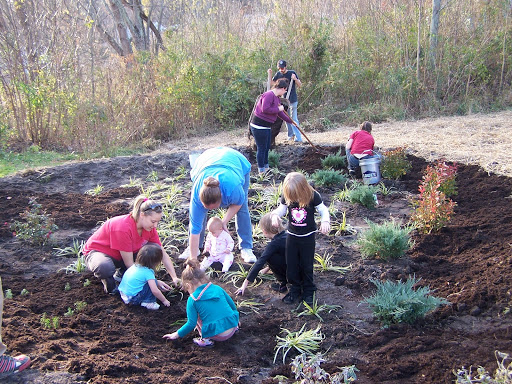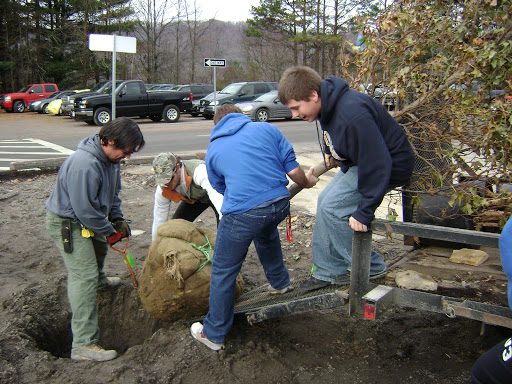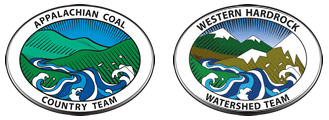Based on the work of
USDA Forest Service Center for Wetlands and Stream Restoration
Eastern Kentucky
Tom Biebighauser has built hundreds of wetland systems throughout Appalachia. Many of these projects involved partnering directly with volunteer groups for construction, including local conservation group chapters, such as the Izaak Walton League, and local schools. Tom’s advice: You get the greatest involvement from volunteers when they see a direct benefit to themselves and their community; and when you tailor the outcomes of a wetland to the volunteers’ goals.

Tested by
Clear Fork Watershed Council
Northeast Tennessee
Clear Fork Watershed Council (CFWC) wanted to educate the local community on the environmental and educational benefits provided by wetlands. CFWC’s goal was to work with student and community volunteers to construct a wetland as an outdoor classroom at Jellico High School. Constructing a wetland would allow students to take part in hands-on learning without expensive field trips. With Tom Biegbighauser on board to assist in designing and building a demonstration wetland, CFWC developed a partnership with Jellico High School. A biology teacher was recruited as a champion for the project and agreed to serve on CFWC’s Technical and Scientific Advisory Council. With the logistics of the wetland project determined, CFWC held a special meeting on community wetlands with Biebighauser as the keynote speaker. They were able to explain the proposed project and its benefits. The project was derailed, however, when CFWC lost the support of the high school principal and biology teacher. Like many schools throughout the nation, the high school was undergoing major curriculum changes and facing pressure from the state to improve standardized test scores, adding to the already large workload for teachers. With wetland construction at the high school postponed indefinitely, CFWC chose an alternate site for the development of a wetland park and stream restoration project in downtown Jellico.
Tested by
McClure River Restoration Project
Southwest Virginia
McClure River Restoration Project (MRRP) wanted to build a wetland in the community. After learning about the services of Tom Biebighauser, a renowned wetland biologist, it became a real possibility. MRRP also knew that local Ervinton High School wanted to build an outdoor classroom to educate youth outside, but did not have the funds and resources. MRRP approached a science teacher at the high school with a proposal to build a wetland and she was ecstatic. With the help of Tom Biebighauser, MRRP planned to build two wetlands at Ervinton High School. After choosing sites, they were able to formulate a budget for the project. MRRP was then able to apply for a Lowe’s Toolbox for Education grant to get the funds needed to construct these wetlands. MRRP was informed by a member of the school board that Ervinton High School was being consolidated within the next few years and would be moved, which hindered progress significantly. MRRP was able to find a new site for a wetland at The Learning Co-op, a project of Fourth World/Appalachia. MRRP’s future goals are to construct the wetland and use it for educational activities. The Learning Co-op would be responsible for maintaining the wetland and using it for regular educational activities.

“Educating the youth outside with a wetland will be more informative than any textbook.”
– McClure River Restoration Project
